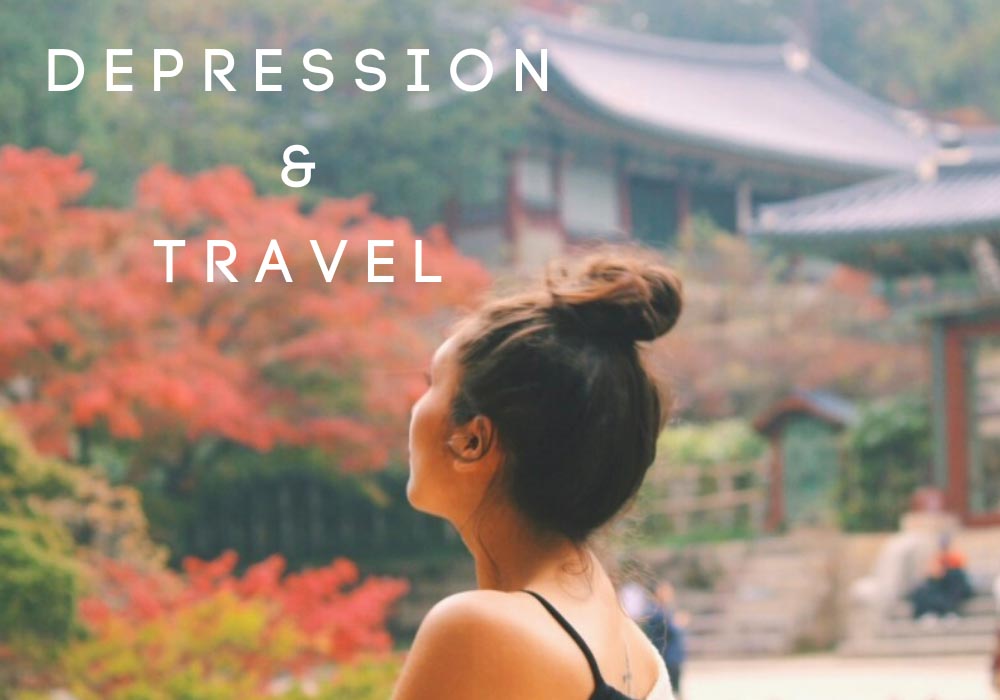
We’ve been all around the world, spending months away at a time, seeing incredible places that most could only dream of visiting—and everything was always fine and dandy, right? Try again. It might come as a surprise to those who imagine travel single-notedly as some glorious baptismal invigoration, but travelling with depression and anxiety is very real. And, it’s more common than you might realize.
In this article we’ll discuss our personal experience with depression and travel, as well as methods to help deal with depression while travelling.
Contents
- Depression and Travel
- What Are Travel Depression Symptoms?
- Depression While Traveling: You’re Not Alone
- Another Personal Experience: Travelling with Depression
- Why Am I Depressed While Traveling?
- Does Travel Help Depression?
- How to Deal When Travelling With Depression and Anxiety
- After Trip Depression
- Travel and Depression: Final Thoughts
- Like this post?
- You Might Also Appreciate…
- What do you love most about travel?
Depression and Travel
Here’s the rub: depression is pretty common. Over 264 million people are diagnosed with depression worldwide, according to the World Health Organization, and I imagine far more undiagnosed cases exist.
And yet, depression and travel are rarely discussed within the same context.
Not gonna lie: we’re totally complicit in this. Our Instagram, like so many others, is more or less a highlight reel of happy travel experiences. Sure, we’ve been open in our captions about the reality of our travel experiences, our disillusionments, criticisms, and confessions, but you might not know that unless you followed us closely and read all our captions. The sad reality is, most travelers don’t even do that.
As a result, it can be easy to look around and think that EVERYONE AND THEIR MOTHER is having the most amazing time traveling.
So what do we get?
An unrealistic standard for travel that so many will hold themselves to. That comes with a ton of pressure and impossible-to-achieve expectations. All these factors can work to make those with travel depression feel even more alienated and alone.
Perhaps you’re in the camp of people who experience pre-existing depression flaring up under the stressors of travel. Or maybe, you’re in the more specific “backpacking depression” or “vacation depression” camp that only comes up when traveling to a new place. Either way, there are strategies that you can implement to treat your depression while on vacation, which we will describe in detail below.
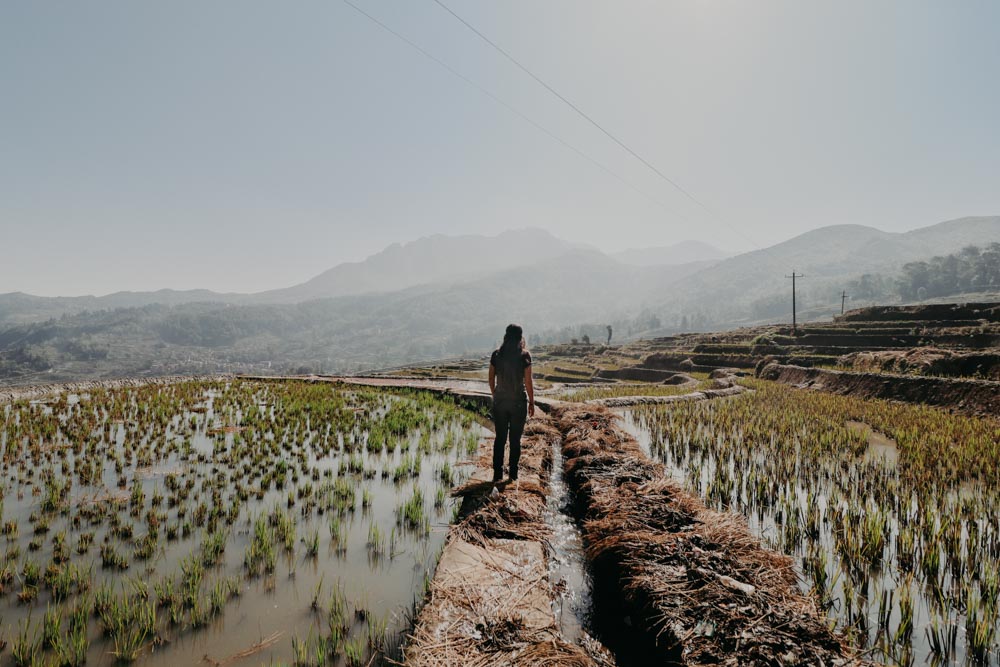
What Are Travel Depression Symptoms?
Travel can be tiring and uncomfortable, so a bit of exhaustion and anxiety is totally normal. However, if these emotions become amplified to the point where you can’t function normally, you might be traveling with depression.
Travel affects everyone differently. Likewise, travel depression symptoms might look different person to person.
Some common travel depression symptoms to look out for are things like loss of appetite, low energy, feeling hopeless, and losing interest in things you once enjoyed…including travel. Other travel depression symptoms might include increased difficulty in managing self-care habits, including sleeping on a consistent schedule, eating healthily, or even showering.
Depression While Traveling: You’re Not Alone
The reality is, “mental health issues are among the leading causes of ill health among travellers” (according to World Health Organization).
If you experience depression while traveling, I want you to know: YOU ARE NOT ALONE.
I hope that, by opening up and sharing my experiences with travelling with depression and anxiety, I can add a few extra decibels to the discussion, and shed just a little more light on an issue that affects so many.
This is my personal experience traveling with depression and anxiety.
When we were backpacking for months at a time, I reached a point when I didn’t want to get out of bed.
We hopped from city to city. Dirt cheap local buses and trains became our main modes of transport (which I love and treasure, but are undeniably exhausting and hard on your body). We were eating dirt cheap local food (which I also love, but is not always healthy). Plus, our journeys took us to extremely isolated destinations, sometimes without a single English speaker in sight.
So, we were incredibly isolated.
The two of us were our only companions, and the only ones we could talk to. And when things went wrong and the stressors of travel were too much, it put a huge strain on our relationship. When Ben and I were fighting, in particular, I felt so alone and my depression was at an all-time high. We were often staying in places with little to no internet, cutting me off from my family at home, as well.
When travelling with depression and anxiety, I didn’t want to do anything. This feeling snowballed, and soon I no longer cared about visiting any of the sights or blogging. I was incredibly jaded about travel, and there were some days that I only left our room to get food.
Figuring out how to get motivated when you are depressed is always difficult, but being in such an isolated place took away my typical methods of managing my emotions, like talking with family.
Sure, I was exhausted from travel, which is totally normal for the extreme kind of backpacking we were doing. But that wasn’t all. The travel fatigue had exhausted my mind and body, but it was the feelings of isolation and alienation that exacerbated it to the point of dysfunction.
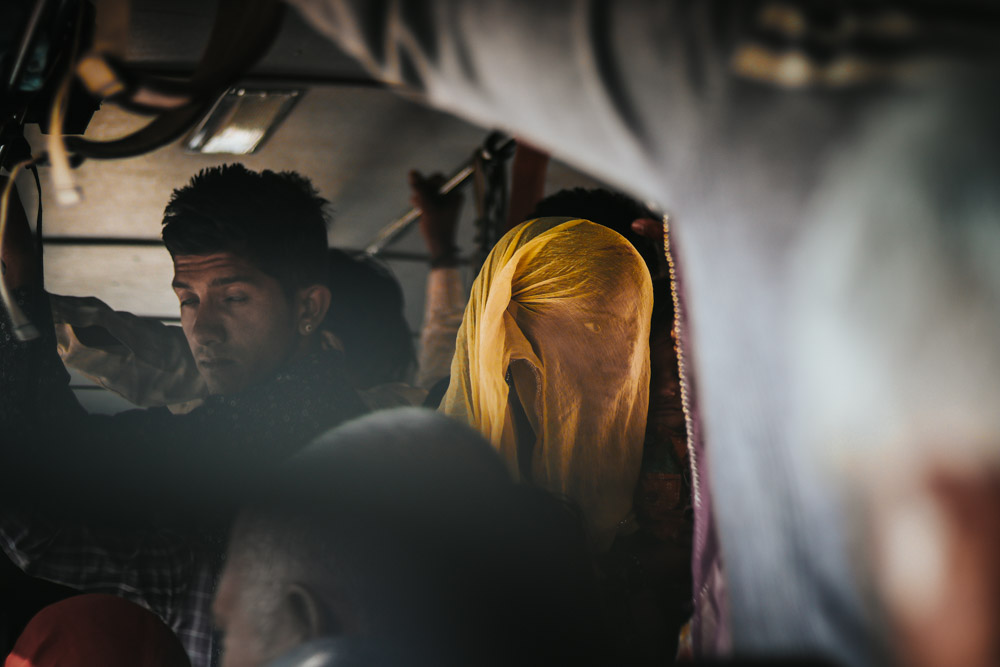
Another Personal Experience: Travelling with Depression
Here’s another example of when I was travelling with depression and anxiety.
It was February 2018, and we were in India for 6 weeks. India is one of the most amazing places we’ve ever been. However, it’s undeniably a difficult place to backpack when you’re doing everything locally, which is generally our MO.
A few weeks into our India trip, I was, once again, physically exhausted. Countless day-long bus rides exposed us to enough dust and pollution to keep us in a state of constant sickness. Additionally, our typically intense travel schedule kept us moving from city to city, lugging around our heavy backpacks with little break. Nothing new, really!
But just like in the previous example, it took extreme feelings of being emotionally cut off and isolated to really lead to travel depression.
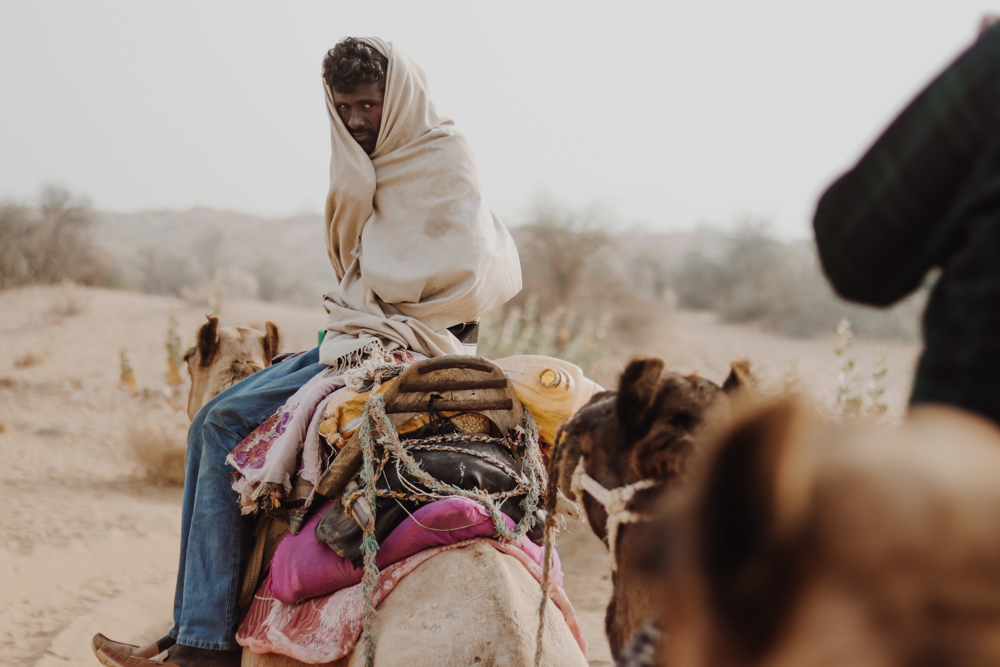
The Trigger
We had just come back from our Indian camel safari, an amazing experience, but one that left us very tired and had aggravated a cold I was dealing with. It was the middle of the night in Rajasthan when I woke up with a start, which I almost never do. But I did this night, and, what’s more, I had this gnawing urge to check Facebook.
In the United States, it was February 14, 2018. This was the day of the Parkland shooting at Marjory Stoneman Douglas High School (MSD), the deadliest high school shooting in American history.
Here’s a little essential backstory: I lived in Parkland, Florida from age 12 to 18, and MSD had been my high school. I have friends who still work at the school and whose siblings are students there. I knew one of the victims. This shooting SHOOK me.
When I checked Facebook, I saw an endless stream of coverage of the shooting, which was currently ongoing, from my fellow Douglas alumni. The shooter was still on the lam, and I began frantically messaging one of my best friends who was herding students in his neighborhood with helicopters overhead. Meanwhile, here I was in India, unable to help. I felt isolated and useless.
Ben was incredibly loving and supportive, but there was nothing he could do to make me feel better—my heart just wasn’t in India.
I spent every remaining day of our trip trying to stay connected to my alumni, wishing that I could be closer. We took care of our blogging collaboration obligations, but that was all I could manage. For a week and a half, I cried every day and spent all my free time in an alumni group for my high school, watching videos covering the shooting, or writing notes to survivors. I’m empathic to a fault (anyone else a Cancer?!), and the pain of the survivors and the victims’ families crushed me.
Reflection and Gaining Composure
It wasn’t until we took a 20-hour train to Varanasi, when I was forced to completely disconnect from the internet for almost a day, that I was able to reflect and gain some composure.
When I was actually able to talk about the shooting without crying, I made a video in response to the shooting. (TRIGGER WARNING: The video has ACTUAL footage from the shooting). I’ve linked it here, for you, but it’s currently unlisted on YouTube, and, honestly, I can’t watch it myself anymore.
The response to the video was terrible. Conspiracy theorists commented tons of hate, and I took it hard in my already vulnerable state. I felt isolated, anxious and paranoid. I took solace in Stoneman Douglas-affiliated Facebook groups, which became a kind of support group for me, but I still had lingering feelings of distrust and anxiety.
It can already take a lot for me to come out of my shell and reveal vulnerable parts of myself to others (I’m a Cancer, remember!), and with the kind of hateful response that I got on the video, I withdrew deeper into myself than I ever have before. That experience, exacerbated by my isolation, fatigue, and sickness, gave me a level of anxiety in opening up to other people that’s taken me a long time to work through.
To be honest, I haven’t been able to backpack or travel the same way ever since. It’s taken me until now to even want to do it again. Of course, currently, we’re on travel lockdown due to COVID-19, and I can’t backpack or travel (ain’t that just how it works out, sometimes).
Of course, this is a pretty extreme instance and most examples of travelling with depression are going to take different forms and have different triggers. However, the root causes will likely still be the same: stress, exhaustion, and something triggering overwhelming feelings of isolation or alienation.
Why Am I Depressed While Traveling?
For me, the prerequisite for travel depression was feeling exhausted from the rigors of travel with some triggering event that made me feel atypically isolated, because I was away from home.
On mental health forums, other reasons for travel and depression are feelings of boredom and loneliness when traveling solo (solo travel depression).
The second most common reason for travelling with depression and anxiety was seeing happy couples.
And the third most common reason was the pressure of having an incredible experience leading to disappointment and dread over wasting money when it doesn’t live up to expectation.
Everyone has a different experience, but the unstable nature of travel opens up a window, even for those who might not typically struggle with feels of depression, to experience anxiety, homesickness, loneliness, culture shock, or, yes, depression during vacation.
It’s easy to forget, but travel isn’t actually an escape from life. It’s still life, just in a different place. If you experience depression at home, simply moving your location isn’t likely to be a cure.
| Traveling alone isn’t all bad. Here are the benefits of solo travel! |
Does Travel Help Depression?
Maybe, maybe not. The experience of travel and depression will be different for everyone.
On one hand, traveling to a new place in a fresh setting can regenerate you. Some believe that travel helps depression and swear that travel saved them from depression.
With travel, you can remove yourself from certain triggers and stressors in your life. You can see how other cultures live and try new things. Travel might help release endorphins and oxytocin, improving your mood and perception. This can all have a positive effect on your mental well-being.
But we should not mistake travel as a cure-all remedy for depression.
If you struggle with depression, traveling might indeed help you grow, but it’s not going to fix everything for you. If you are depressed, changing your location won’t be a cure. Further, the stresses of travel, such as jetlag depression, crowded airports, delayed flights, traffic, and so on, can seem like intimidating obstacles to someone experiencing depression while traveling.
What travel can do, is extract you from a situation and potentially open your mind and perspective that can, in turn, help with depression. So in that regard, you could say that travel helps depression, but not without work on your end. What it all boils down to is mindset.
I do personally believe in the power of travel on one’s wellbeing. And if you do find yourself travelling with depression and anxiety, there are healthy ways to cope with depression that are totally manageable.
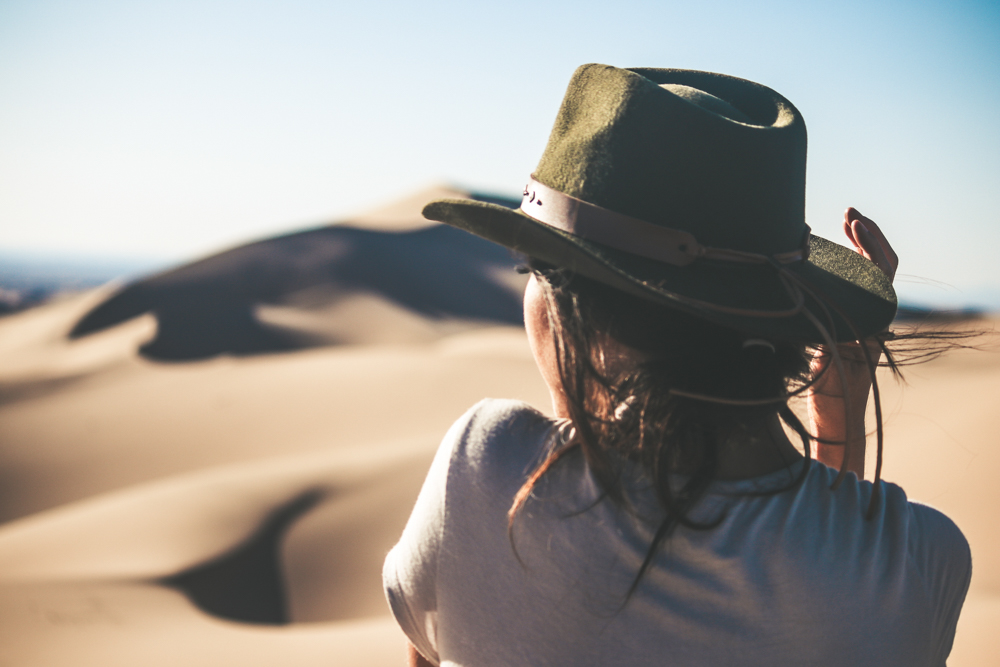
How to Deal When Travelling With Depression and Anxiety
If you’re looking for how to get out of a depression funk while travelling, the answer, is mindset. Anyone struggling with depression shouldn’t have to give up travel! You just might need a little extra preparation, and use of mindset techniques to help your trip go smoothly.
Having a positive mindset will come much harder to someone struggling with depression when travelling than it will for someone who isn’t, but there are steps you can take to keep you on track.
The following tips are healthy ways to cope with depression while travelling that we’ve learned from our past experiences. What works for us might not work for everyone, of course. However, I hope you can implement some of the methods and see what works best for you.
Remember, mindset is key when travelling with depression and anxiety!
Set Achievable Expectations
Earlier we talked about the “Instagram Effect” and mental health—this phenomenon of witnessing a concentration of amazing “highlight reels” that results in impossible-to-achieve expectations. The Instagram Effect is terrible when travelling with depression and anxiety!
In order to reduce stress when traveling you should avoid placing pressure on yourself to recreate what you think your vacation is “supposed” to look like.
Maybe the ideal trip for you right now is a weekend wine getaway; perhaps it’s a two-week backpacking Eurotrip. Everyone is different, but your trip doesn’t have to be some epic bucket list trip to have value.
| Learn more about dropping expectations in What I’ve Learned From Traveling |
So here’s what you do.
Don’t choose your destinations based on what you see others doing—rather, assess your personality and what bring you joy. Then, choose a vacation destination and itinerary accordingly.
Also, make sure to factor in the realities of travel into your expectations. The stress of managing crowds, traffic, jet lag, going through TSA, and being in a different place are all to be expected and should be factored into your expectations. Embarking on a trip believing that it’s going to be the most amazing, perfect experience is going to add tons of pressure and open up room for disappointment, so be sure to set realistic expectations.
Preparation and Planning
For some, PREPARATION and PLANNING is the key to dealing with anxiety while traveling. When you plan your trip in advance, make sure to account for a few hiccups and bumps in the road. If planning helps calm your inner turmoil and anxiety, then take care of your planning before your trip. Also, make sure to factor in some downtime in your schedule, in case you find you need it.
Now, if you’re struggling with depression before traveling, it’s important to take stock of yourself and your headspace before embarking on your trip. And if you see a doctor or therapist to treat your depression, you should make sure to discuss your trip with them, and have them assess whether it is a good time for you.
No matter what you do, focus on your headspace. Remind yourself that whatever happens, you’re going to make it work. Have a mantra to soothe you: something to simply remind yourself that you’re going to control whatever you can control. Remember, you are strong and you can handle whatever challenge comes your way.
| Don’t get caught off guard! Learn the TSA Rules and Carry-On Restrictions |
Don’t Compare Yourself to Others
In the same vein as setting achievable expectations, it’s also important to not compare yourself to others. Your trip is yours. It’s unique to you, and that’s what makes it special.
Avoid comparing your vacation to others’ vacations. Travel is different for everyone, and different people can garner different values from what might superficially seem like similar experiences. Everyone has ups and downs, and you can easily forget that if you’re watching someone’s up while you’re currently down.
When travelling with depression and anxiety, adopting a roll-with-the-punches approach takes more effort and focus than it might usually. However, doing so will be immensely helpful in managing the stressors of travel. When I look back on my travels, it’s often the times that something went crazy wrong and I handled it like a champ that stick out as my finest memories! If your trip isn’t going perfectly, remember it will all pass. Who knows, you might remember it fondly one day!
No matter what you do, one thing to avoid is negative self-talk. Whatever happens, you’re doing your best, and that’s wonderful. Be kind to yourself!

Photo Credit: Riley Kaminer
Take Care of Yourself
When I look back at my experiences travelling with depression and anxiety, I notice a huge prerequisite for me becoming overwhelmed to the point of dysfunction was a lack of routine self care. Days spent on trains and buses meant little sleep and nothing to eat but instant noodles and junk, no showering, and no exercise. Neglecting these self care rituals can have a cumulative effect on your sense of self.
When possible, incorporating healthy meals, regular exercise (a bit of walking or stretching can do the trick), and enough sleep. A little attention to these three things can do a world of wonders in keeping you feeling like yourself.
Keep a Regular Sleep Schedule
Also, try to maintain a consistent bedtime and get enough sleep—it can make a huge difference on mental health. If you have trouble sleeping in a new place, you might want to consider meditation, a nightly routine (Ben brings a sleep mask and little roller of lavender essential oil to help him relax wherever we travel), a sleep app (we use Pzizz) or something from home like a cozy compact blanket to help you feel comfortable.
It might feel overwhelming at times when you’re in a strange new place outside of your typical routine, so do your best to incorporate self care rituals! Self-care is a huge part of managing your emotions when travelling with depression and anxiety.
| Don’t get on that plane without looking at this essential carry-on packing list! |
Set Realistic Goals
In theory, vacations are meant to be relaxing. However, sometimes the pressure of packing so much into a short amount of time can aggravate feelings of anxiety while traveling.
During the times of my life when I’ve experienced depression while traveling, I struggled with a kind of anhedonia, the inability to experience pleasure. This kept me from caring about doing anything. I put so much pressure on myself that each experience had become so tedious, and I ended up spending days in the hotel room.
While it’s okay (and important) to take a break, especially for long-term travel, it’s also important to set small goals to keep you going when experiencing depression on your travels.
Practice Behavioral Activation
Practice behavior activation each day. It doesn’t have to be a huge trek. Even a walk in a new place can help get you exploring. By doing so, you can work up some behavioral momentum to keep you excited for new things each day without getting overwhelmed. Setting small, achievable goals can also help you focus on the present.
If you make a proactive plan to cope with feelings of depression or anxiety while traveling, that’s an incredible victory!
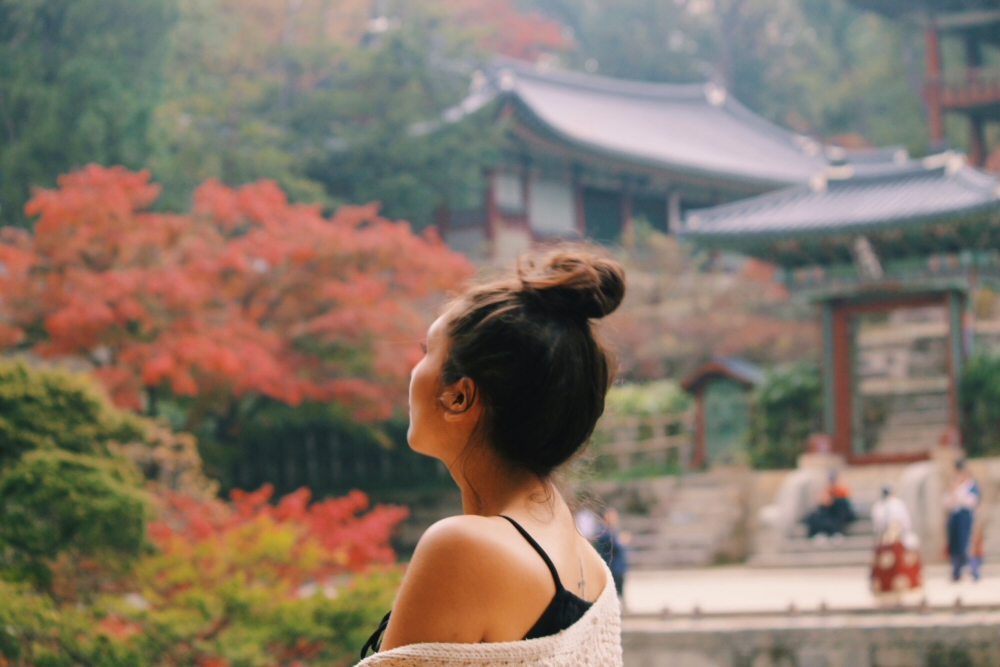
See a Familiar Face
When in a new and unfamiliar place, sometimes a familiar face on video chat (or a familiar voice on a call) can do wonders in helping you feel more comfortable again.
In my experience, this wasn’t always possible, given the sometimes uncertain internet connectivity one can experience while traveling. For these instances, I would recommend writing a letter to someone at home, perhaps a friend or family member. You can choose to send the letter or give it to the person when you return home. Alternatively, you can just use the writing of a letter as a symbolic, therapeutic exercise.
When I experience depression when traveling, the most agonizing part is how lonely I feel. And without much energy to socialize, it can lead into a vicious cycle of depression.
In these cases, a call, an email, a letter, or even a text can do wonders in making you feel more connected to people you love, and in helping to ease your depression while traveling.
Join a Support Group or Online Counseling Service
Alternatively, you can join depression-focused support groups on social media. Support groups can help connect you online with people who are having similar feelings of depression. Some to check out are Depression Support Group or Safe Haven on Facebook. There are also online counseling services to look into, such as Talkspace or BetterHelp.
For me, the MSD alumni group I was a part of functioned as a support group. As a support group, it helped me work through the feelings of helplessness I was experiencing when travelling with depression and anxiety.
Solo Travel Depression
While I do believe in the power of the lone wander, which is why I’ve written in detail on the benefits of solo travel, experiencing depression travelling alone might sometimes feel so much more pronounced than when you’re with others.
If you’re traveling solo and struggling with solo travel depression, you might benefit from building up the courage to ask a fellow traveler to dinner or a drink. If you see another solo traveler, remember they might also be dealing with feelings of loneliness. Odds are, they would appreciate companionship just as much as you.
I generally tend to be a lone wolf, but even I know there have been many times on a solo trip that I’ve thought, “I just want someone to travel with.” Listen to the stories of people you meet! It will enrich your trip, and can be a helpful distraction if you’re struggling with depression while traveling.
| Can a pet be a travel companion? Here’s our guide to taking pets abroad! |
Let Yourself Off the Hook
It’s true that it’s important to set small goals to build up behavior momentum when struggling with depression while traveling. But it’s equally important to let yourself off the hook once in a while. That’s right—it’s okay to take a little vacation from your vacation!
If you choose to explore for a bit of time, then it’s perfectly fine to also allow yourself some downtime. Having time to unwind can prevent yourself from feeling overwhelmed or anxious.
Letting myself off the hook is something I really wish I had done more of. On one of our long-term trips, we had just come from Mongolia. We were making our way down the spine of China, stopping every few days in a new city. Eventually, every city blurred together and I stopped enjoying any of it. I desperately wish I had just let myself off the hook, and given myself a week in just ONE PLACE! Maybe get a massage or buy myself a nice new dress—something to get me to just slow down, have a little fun, and appreciate the place.
Live in the Present
It can be so tempting to start to “hoard” and “collect” sites and destinations when traveling that you lose the ability to actually live in the present and enjoy it.
If you’re travelling with depression and anxiety, it’s important to live in the present, and just relax. Letting yourself off the hook is letting yourself just take a breather, and allowing yourself some downtime. Don’t feel guilty. It’s a necessary part of attending to your mental health. And it will have a positive impact on your trip as a whole.
Bring Your Medications
If you’re on medications, it’s important that you make sure to bring more than enough for your trip. And always pack medications in your carry-on bag!
For a detailed list of what to bring in you carry-on bag, make sure to check out our Essential Carry-On Packing List, which has everything you need to bring in your carry-on bag, including medications.
But managing your medications doesn’t just stop at packing them! To reduce the risk of any depression flare ups while traveling, make sure to take your prescribed medication dosages. Never make adjustments to your medication without the approval and supervision of your physician or psychiatrist.
Additionally, you will need to look into the legal status of your medications for your travel destinations. It is possible that your medications might be restricted or banned in some parts of the world, so it’s important to refer to the International Narcotics Control Board to ensure you won’t have any problems.
Anti-Malarial Drugs
Further, if you’re planning on introducing any new medications for your trip, such as anti-malarial drugs, check with your doctor to see if they can safely interact with any medications you’re already on.
Do take note that anti-malarial drugs can have some nasty side effects. This may include psychological side effects such as anxiety, depression, hallucinations, and acute psychosis. If you are going to a region of the world where malaria is a serious threat, consult with your doctor to find the best anti-malarial medication that can work with you.
After Trip Depression
We’ve talked a lot about traveling with depression, but what if your depression doesn’t start until after you finish traveling? Post-travel depression, or the travel blues, is totally normal. I have experienced it at times, but Ben experiences it almost every time we return from a trip.
Leaving behind a wonderful trip and returning to what might, in comparison, seem like an unfulfilling routine can be depressing. However, After Trip Depression doesn’t have to ruin your life!
Many of the coping methods for traveling with depression can also apply to managing post-trip depression, as well.
Plan Ahead
We recommend planning to have at least an extra day to re-acclimate after your trip before returning to work.
Take Care of Yourself
Getting over jet lag can be difficult, but try to adhere to a regular schedule of your home time zone. Wake up in the morning, get some sun on your skin, drink plenty of water, and eat healthily.
Mindset
Be thankful that you had the opportunity to have this trip, and look forward to future opportunities to explore!
Travel and Depression: Final Thoughts
Nothing about depression is black or white. There are ups and downs, and everyone is different. Traveling with depression requires day-to-day management, but coping is completely possible! It takes introspection and inner strength, but the process of figuring out what works for you can teach you so much about yourself. If any of these methods have helped you in your experience with travel depression, or if you’ve found any additional methods that work for you, please share!
And if you ever need someone to talk to, please don’t hesitate to contact me or Ben, whether you’re traveling with depression and anxiety or not! Comment below, or feel free to send us a message any time on Instagram or Facebook.
Like this post?
Share it on Pinterest by hovering over one of the pictures below and clicking the red “Pin It” button!
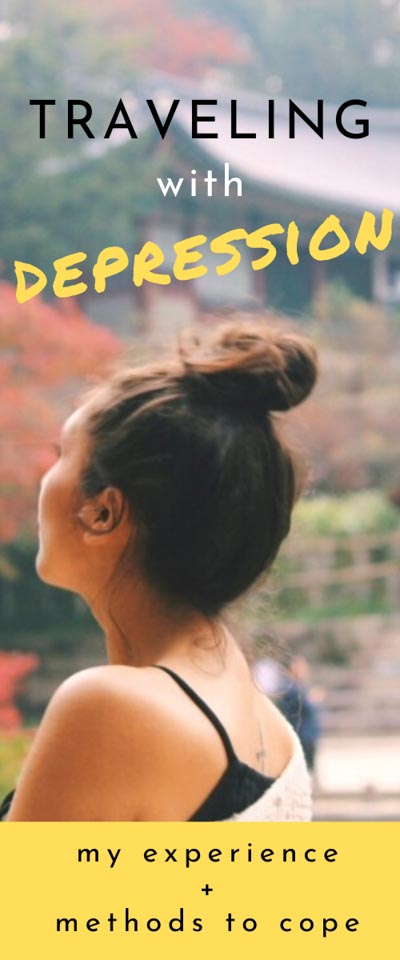
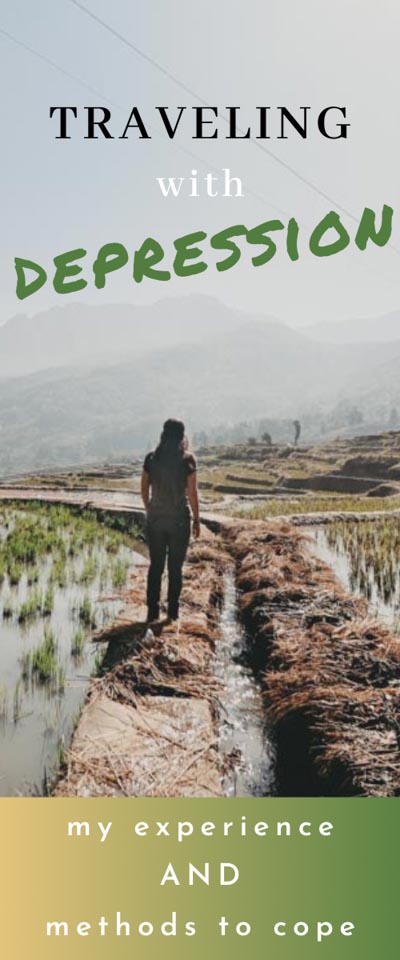
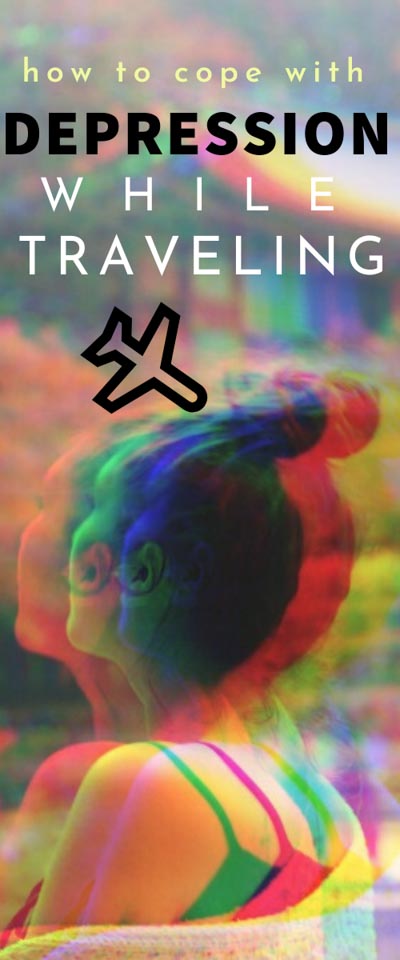
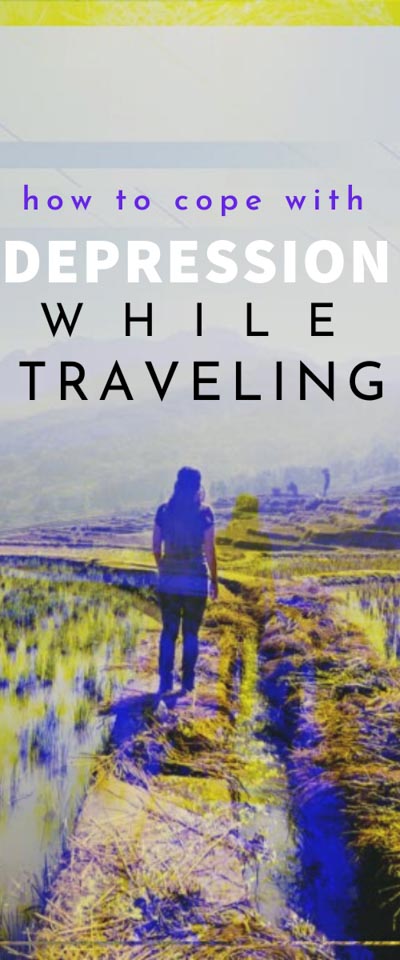
You Might Also Appreciate…
Prepare Your Trip
- TSA Rules You Need to Know: A Guide to TSA Carry-On Restrictions
- An Essential Carry-On Packing List (+ the Things You Can’t Take on a Plane)
- Essential Cameras for Every Traveler
- Best Laptop Case for Travel: A Durable, Shockproof & Waterproof Laptop Sleeve
- Travel Hack: Do a Cheap Flight Search Like a Pro
- Anatomie: The Best Travel Outfits for Long Flights and an On-the-Go Lifestyle
- Survivor Filter Pro Review: How to Purify Water Anywhere in the World
- International Pet Travel Tips: Your Guide to Taking Pets Abroad
- Travel in Style: The Best Travel Day Bag (& What to Pack in It)
More Travel Posts
- Traveling the World Alone Makes You a Bad Ass: 10 Benefits of Solo Travel
- What I’ve Learned from Traveling to 25 Countries
- Shibuya Tokyo Food Tour with Arigato: A Japan Travel Guide
- Climbing Sunrise Peak (Seongsan Ilchulbong): An Icon of Jeju Island, Korea
- O’Sulloc Tea Museum and Green Tea Fields: Jeju Island, South Korea
- Hallasan Mountain: The Ultimate Guide to Hiking South Korea’s Tallest Mountain
What do you love most about travel?
Tell us in a comment below!
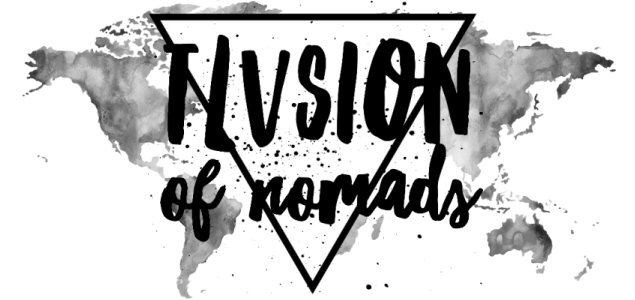

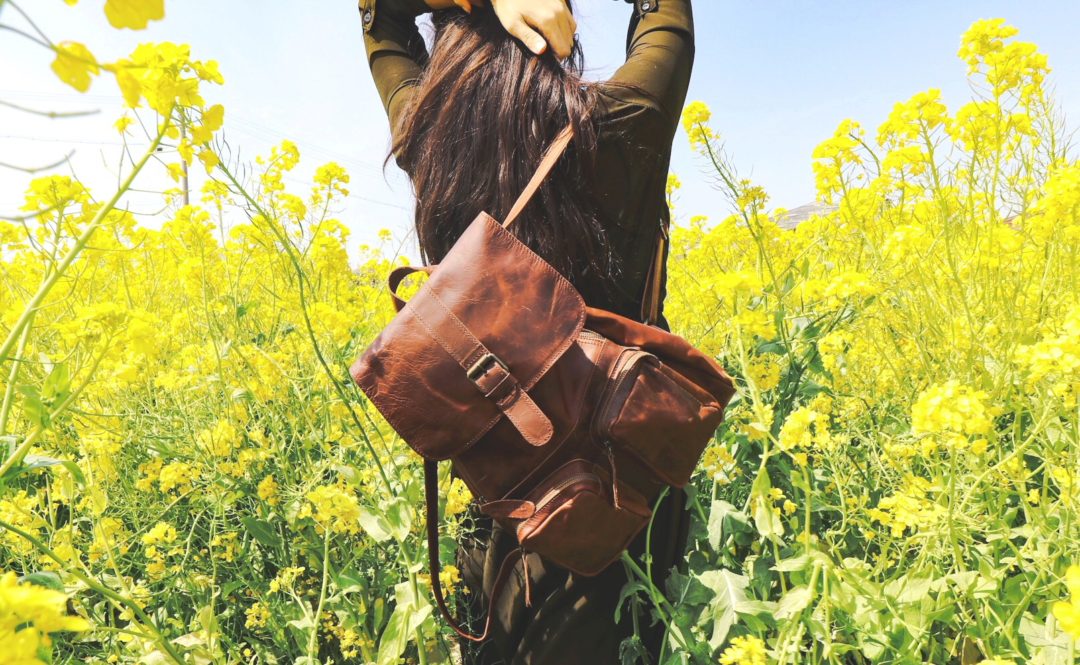
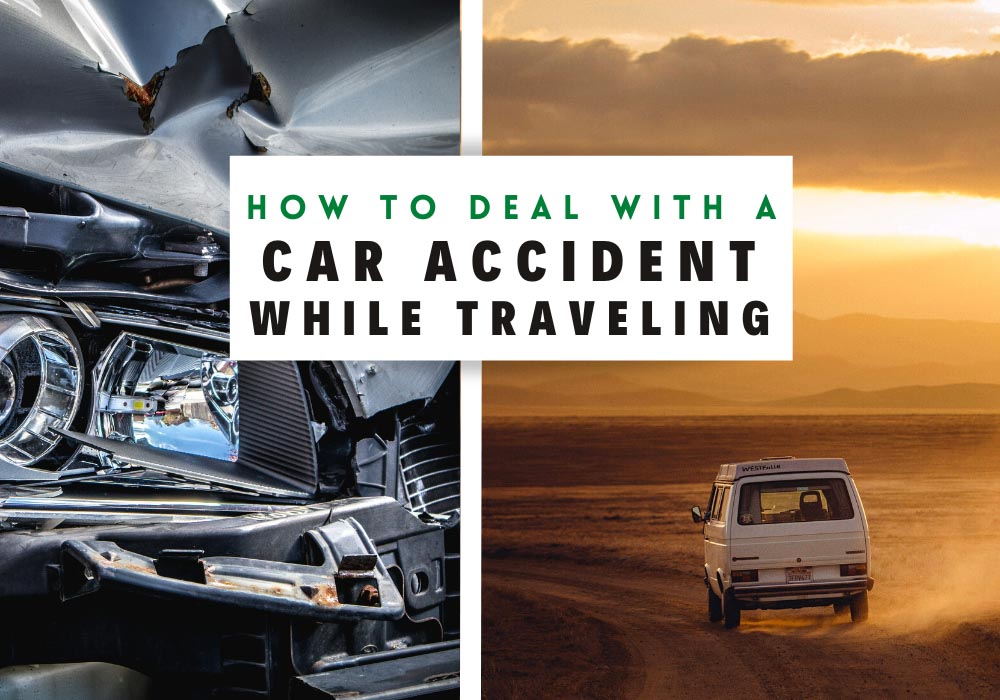
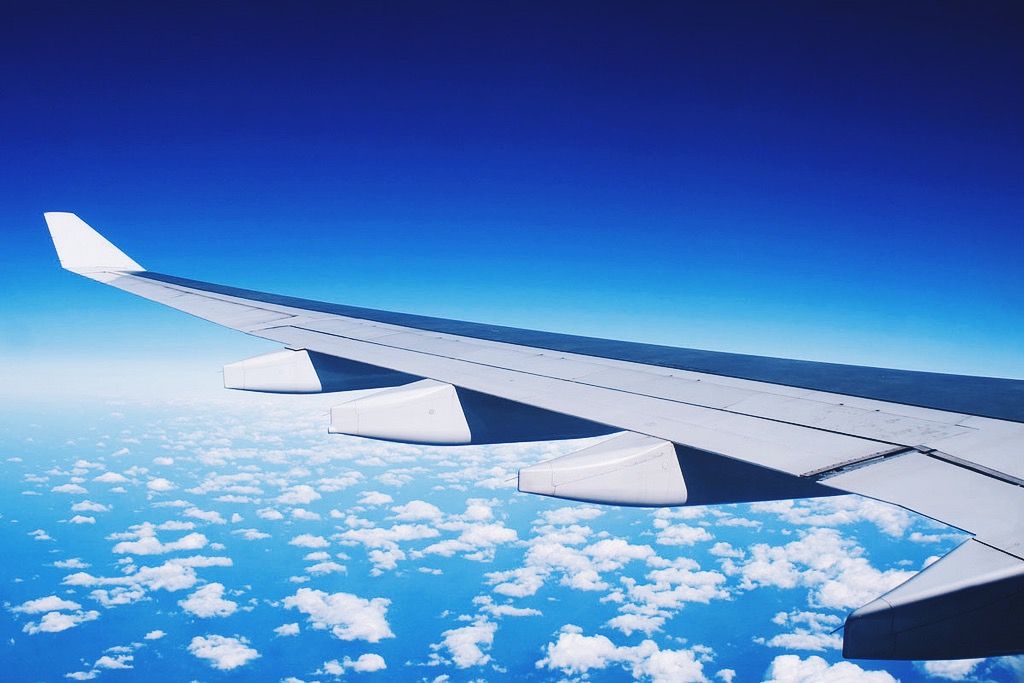
No Comments